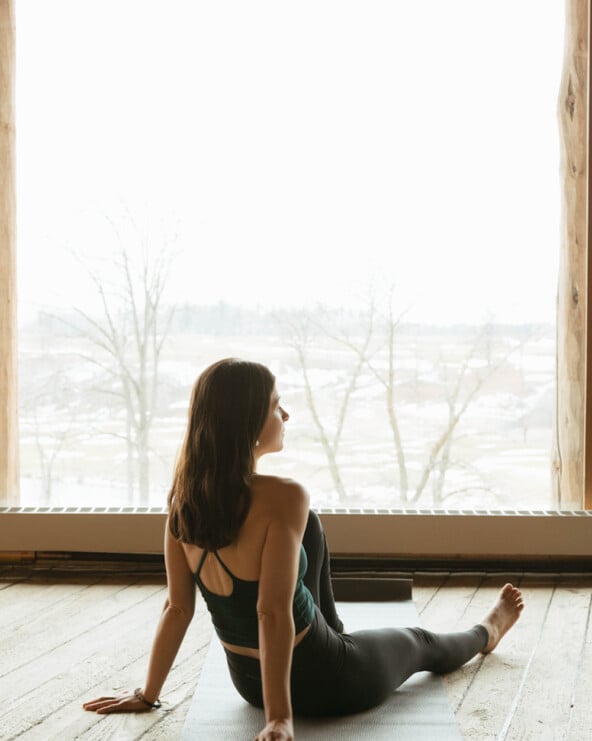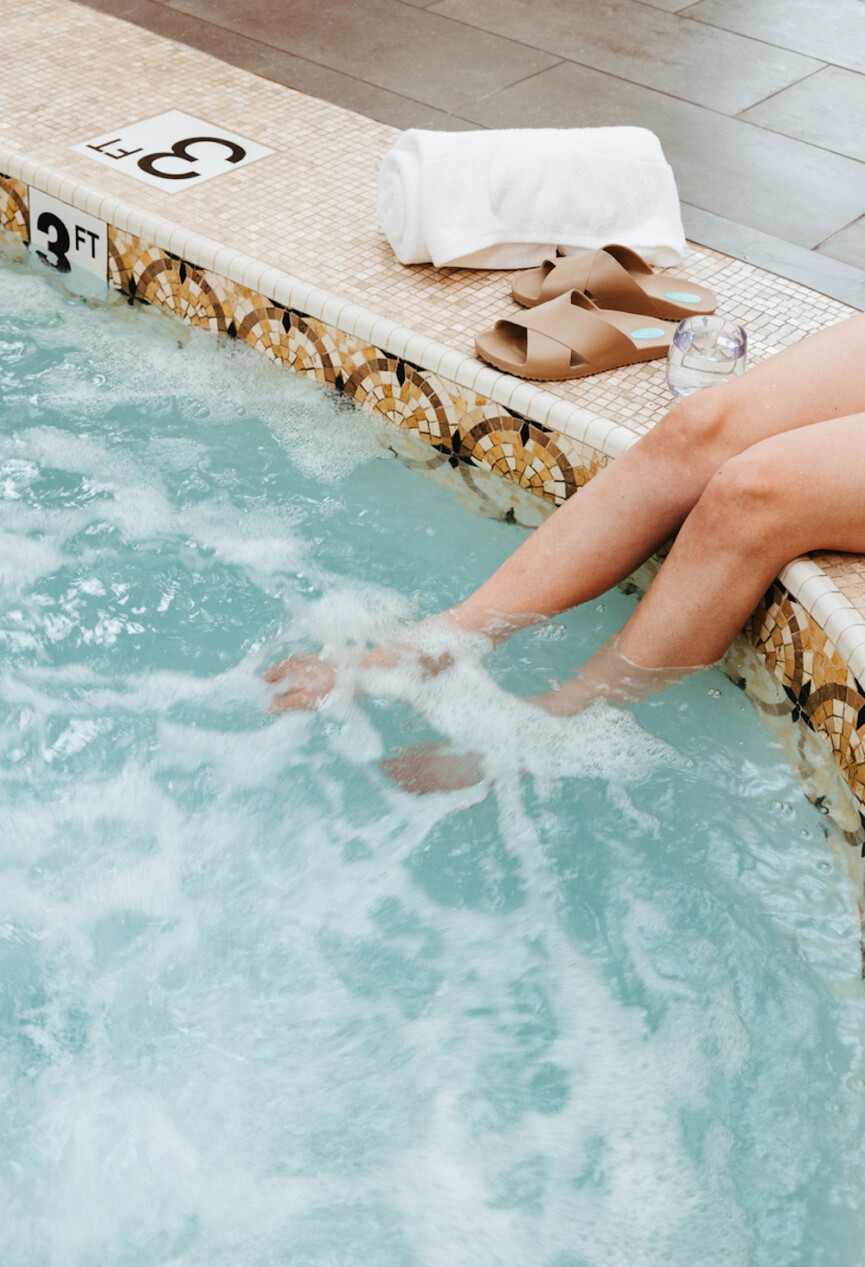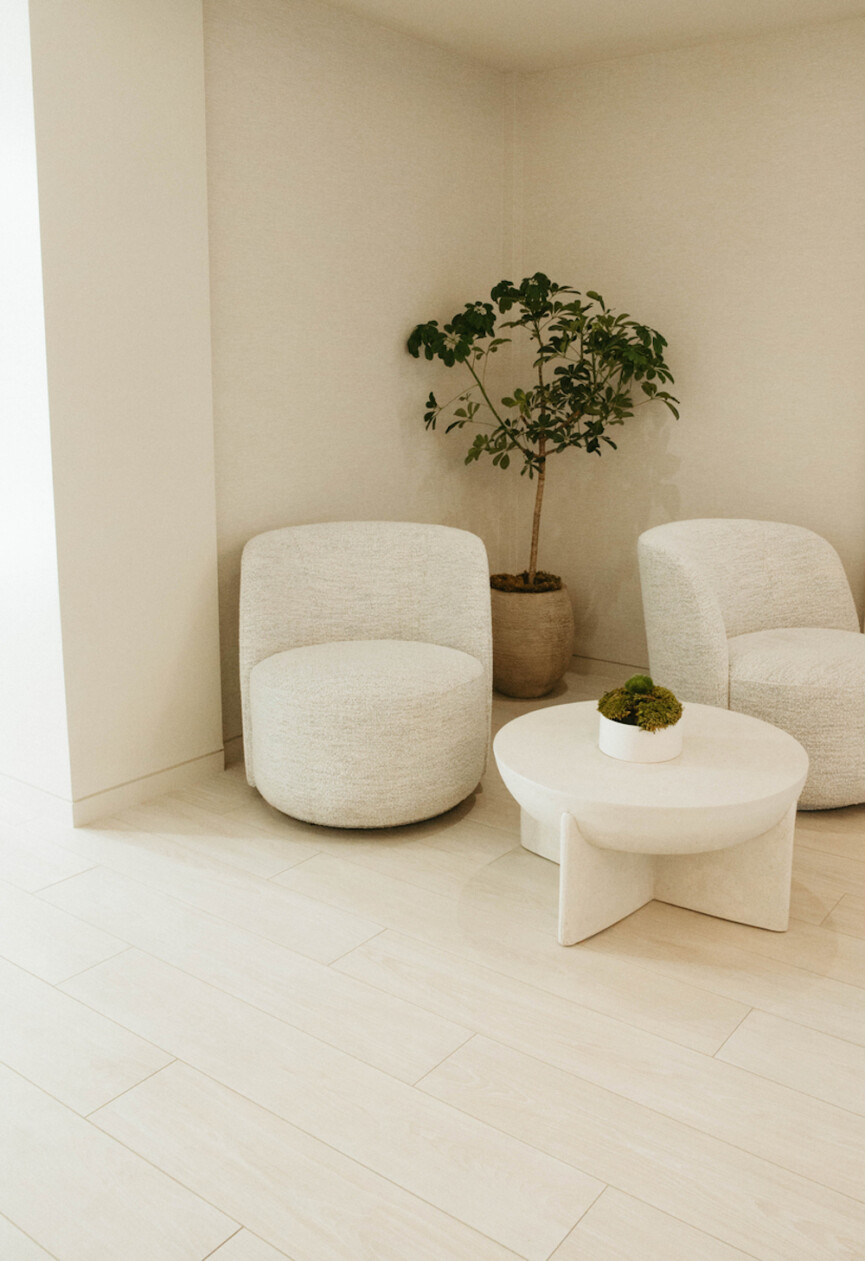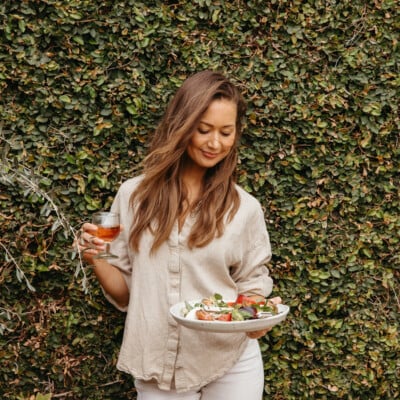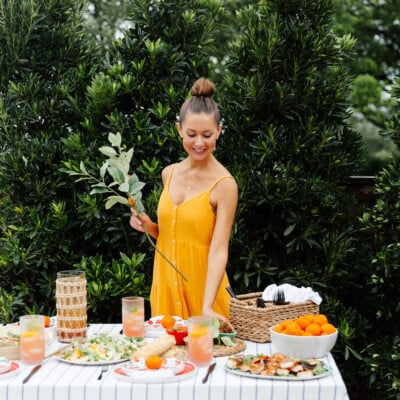Apparently, I’m in the midst of my Saturn Return. Life is feeling chaotic, and when I’ve expressed this to my astrologically inclined friends, they point to the cosmos for answers. The gist: I’m being asked to make big decisions, and I can feel an energy shift taking place. It’s uncomfortable being in the middle of anything, particularly when we don’t have a clear path forward. But I know that when my life is swirling quickly around me, the best thing I can do is get quiet and seek out stillness. And funny enough, when I put that intention out into the universe (as well as making my need for it abundantly clear in my vision board), I was rewarded with an experience that gave me the guidance I craved.
Enter: the Kohler Waters Spa in Kohler, Wisconsin. A two-hour drive from Chicago, the spa is part of a larger, idyllic resort—boasting the sort of natural, unfettered beauty that seems to exist only in storybooks. (Or perhaps more relevantly, our highly-curated Instagram feeds.) I was visiting for a weekend-long yoga retreat, consisting of multiple classes each day and exposure to an array of wellness treatments. Yes, I realize how Eat, Pray, Love this all sounds—but frankly, I was here for it. I needed a total shake-up from everyday routines to help me look at my life from the outside. Little did I know, but I would be presented with a whole new level of clarity that wasn’t otherwise possible.
A Commitment to New Experiences
We’ve always leaned heavily into the belief that an openness to novelty can be one of our greatest strengths. That desire to expand and meaningfully engage with the world is what pushes us along the path of continuous growth. It’s not necessarily a need to always be “better,” but more so a curiosity that points us in the direction of what in our lives we truly, deeply connect with. That’s exactly the mindset I went into this weekend with.
Yoga and I have long had an off-and-on relationship, with my practice looking consistent in some years of my life and entirely nonexistent in others. But I’ve never stepped away from it completely, trusting it as something that I can always return to for a feeling of safety, harmony, and inner peace. Given yoga’s widespread popularity across the world, it’s obvious I’m not alone. To understand further what exactly is at play in instilling these feelings of support and connectedness, I spoke with Jonah Kest, a Nike Trainer and yoga instructor—and the leader of the weekend’s retreat.
Ahead, Kest and I discuss everything from yoga fundamentals to the benefits of a retreat. And be sure to read to the end, where Kest unpacks the yoga myths Western culture has led us to believe. (Spoiler: You don’t need a dedicated lulu wardrobe to start your practice.)
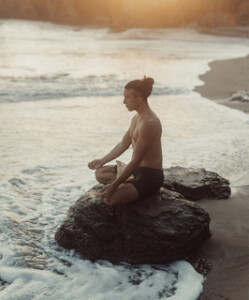
Jonah Kest was born into a yoga legacy. With his father, vinyasa yoga pioneer Jonny Kest, and his mother, Milla Kest, as one of the first yoga business owners and yoga teacher training programs in the midwest, he was destined to follow the path. Today, Jonah is a well traveled ashtanga/vinyasa teacher whose classes are both graceful and intense. Impermanence, compassion and humility are just a few of the elements that Jonah seamlessly weaves through each healing practice.

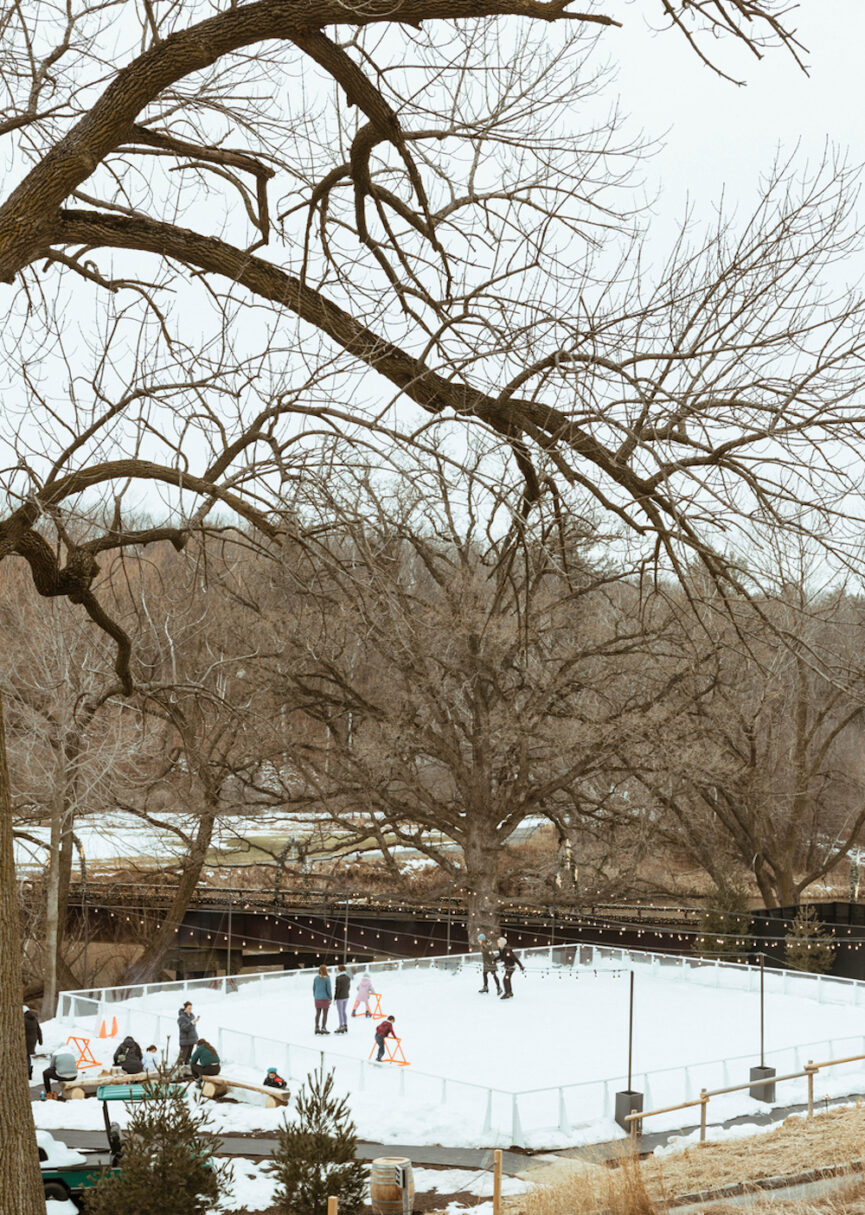
What drew you to Kohler to lead a retreat?
Of course, Kohler is known for their appliances. But when you connect with the people behind it, it’s evident that they’re very wellness-driven. They’re making a lot of advancements, whether it be creating a cold plunge or a sauna—and even the whole village itself feels five years ahead for the Midwest. It’s like we’re in LA.
Here, it feels like somewhere people can grow. There’s the infrastructure to feel supported and like you’re being taken care of. They’re using their resources to support people along this path of growth.
What do you hope people get from attending one of your yoga retreats?
It’s a time to get away from your every day. To run wild. Everyday life can be full of distractions and chaos. It’s nice to put yourself in an environment where you can recalibrate and move into your creativity. For me, if a retreat is done properly, it’s fertile ground for growth and self-transformation. Oftentimes we’re on autopilot. But to take yourself out of that and to be around other like-minded people who share that same goal, it’s pretty magical what you can do in a weekend.

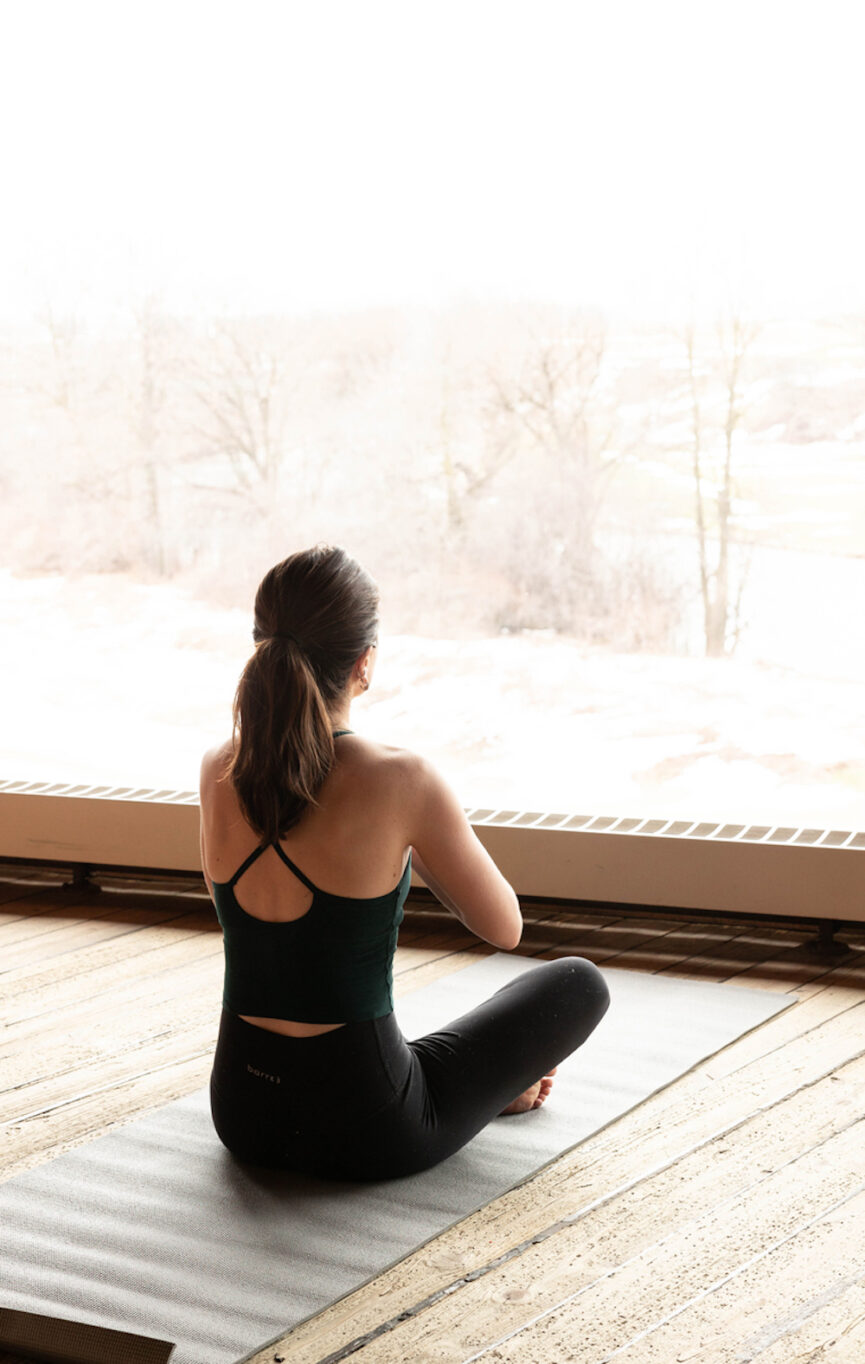
Your teaching style is laidback but intuitive, allowing people to fully explore the postures. Why is that approach important to you?
Yoga supports creativity and self-exploration. It’s that perfect balance between discipline and freedom. Having that balance is a tough task for a teacher, but when it happens, it permits people to be true to themselves and to take care of themselves. They’re not necessarily listening to the teacher, but they’re taking the teacher’s suggestions and making them their own.
The goal isn’t to do the posture “correctly.” My goal is to get students into the basic shape of the pose and then to turn their attention inwards. The goal is not to look a certain way—if you’re looking at me, almost immediately, it becomes a comparative practice. You’re seeing me do the pose and it’s taking you external. There’s a time and a place for what we call modeling, it’s a great way to learn. But it ultimately takes you out of your practice.
Many people see yoga as a very physical practice, but it incorporates a very holistic way of being. What does living a yoga-driven life look like to you?
If your yoga practice is working, it will move you toward balance. And not just balance physically, but all the dimensions of being—mental, emotional, and spiritual. The goal of yoga is to strengthen the qualities that are serving you, your highest virtues like patience, presence, compassion, generosity, and gentleness. These things we want to nurture. And then it’s getting rid of the things that aren’t serving us, like our competitiveness and our ego.
When we come into class, we’re focusing on strengthening those benevolent qualities. Conversely, we don’t want to ignore what isn’t serving us but rather face it. A yoga practice is a safe place to do that. You’re around other supportive people and you’re not in the real world. It’s okay to slip up.
It’s important to remember that the perfect pose does not exist.
Postures are based on archetypes—and not every downward dog will look the same. You just want to get into the shape and then make those intuitive adjustments. And that can be on either a micro or macro level. Maybe it’s the rotation of your shoulders, or you need to open your hands a little bit.
You also learn to embrace a playful versus performative spirit. When you’re coming to your practice with a childlike sense, you get to lean into that sense of play—and reap all of its benefits. There have been countless studies showing that people who engage in play are happier, more creative, and open to exploring. That’s the intention you have to make when you come to your mat. Remember: yoga doesn’t want to fix or change you. Just be where you are and observe how you can grow.

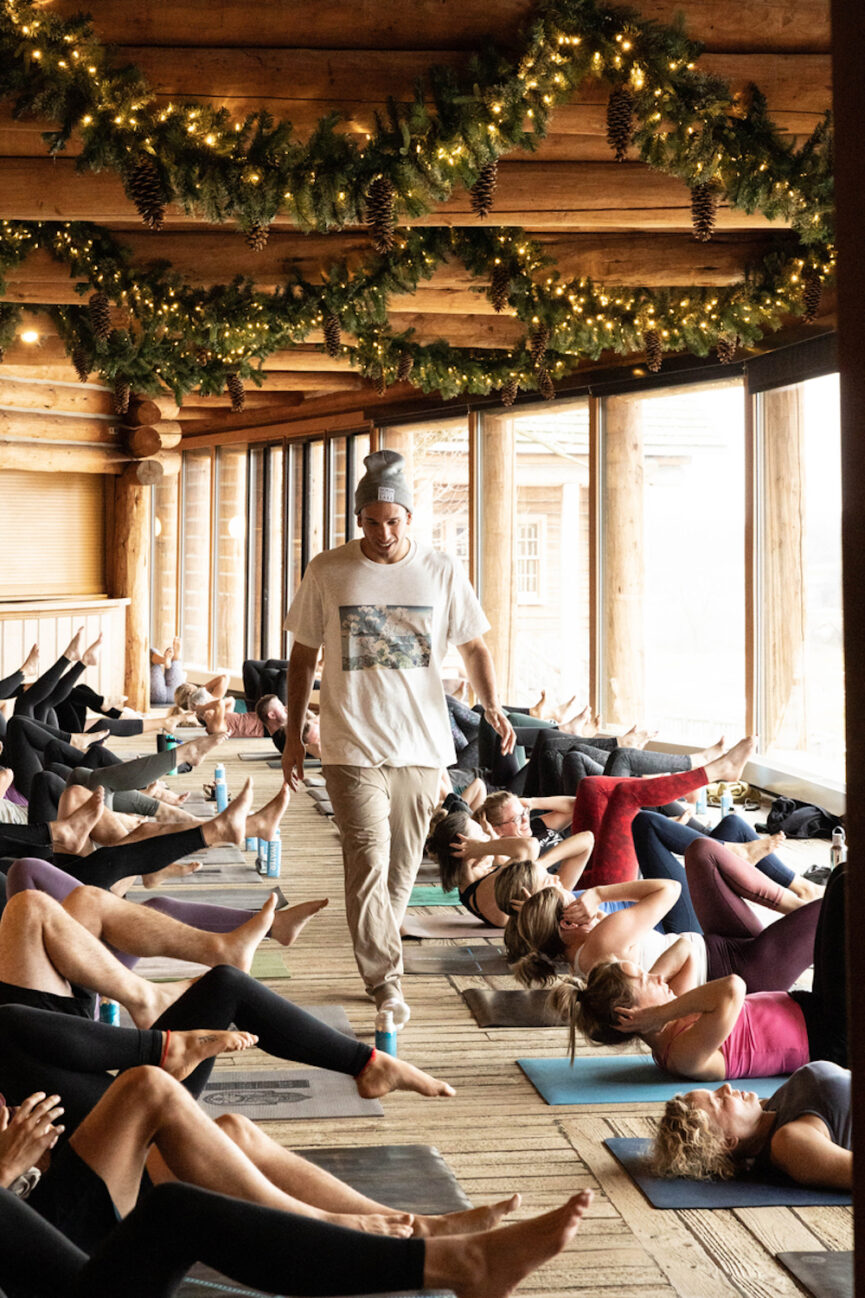
You have an incredible platform through which you can teach yoga to a wide audience. What is your ultimate goal in sharing yoga with your community?
It’s a great responsibility and a blessing to share these things that have helped me so much with other people. Giving people the tools to help themselves is a joy. If you come across an emotional pain or hardship, it’s having the tools to be with that and face that and to come out the other side with balance—you can’t put a price on that. And I’m not explicitly teaching that, but we’re all learning it together throughout the process.
The most intuitive, intelligent teacher in the room is the student […] We’re always looking outside of ourselves for advice when all we need to do is look inward.
The most intuitive, intelligent teacher in the room is the student. A masterful teacher can point the students to listen to their own inward teachings. We’re always looking outside of ourselves for advice when all we need to do is look inward. Of course, it’s important to receive suggestions from people with a lot of experience and to be open to that, but ultimately know that you have all the answers within you. It empowers people—yoga is a really empowering practice.
The modern yogi is the everyday person who can walk through life with a little more ease, relaxation, and creativity. A yoga practice can even be just five minutes of doing a little breathing before you go to bed. Do a self-experiment: See how it feels to take a few deep breaths before a stressful task or event. Notice how that simple act changes your entire nervous system.

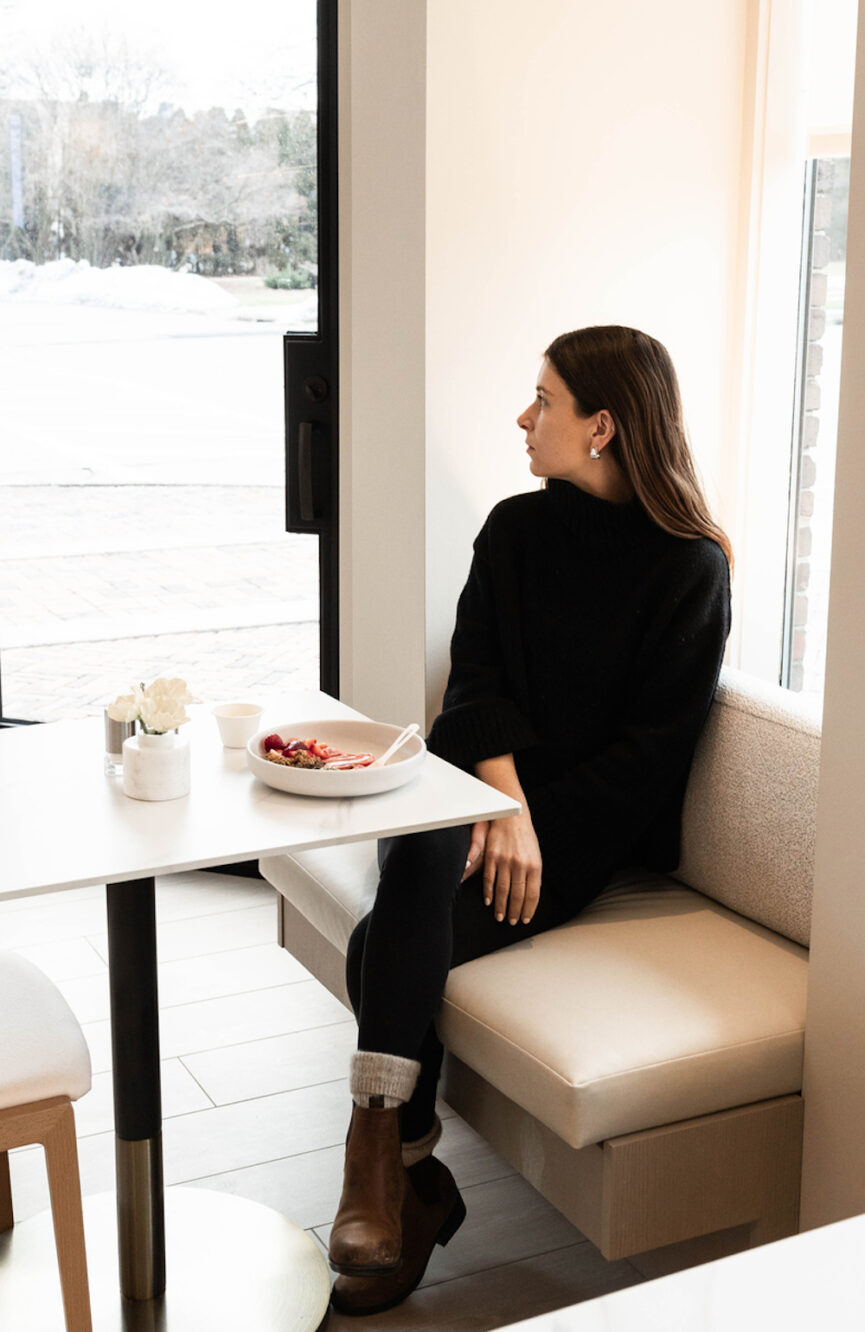
The Takeaway
When we find ourselves in a space of deep transformation, it can be tempting to ask others what our next step should be. Believe me, I have a habit of crowdsourcing my milestone decisions to anyone who will listen. But after the yoga retreat, I decided instead to listen to Kest’s words and turn inward. I reflected on the following three questions:
- What do I truly want for myself?
- What actually serves me?
- What does it look like for me to step into the fullest version of myself?
These aren’t questions to ask only during our Saturn Returns. (Though if you’re in a similar place, let’s chat.) Instead, they’re questions I now choose to mull over in sometimes small, sometimes more significant ways during my daily journaling sessions. Or they’re questions I’ll ask my close friends during coffee chats that inevitably turn into the deepest heart-to-hearts. It’s an important reminder that what we need is always available to us, it just requires looking to a sometimes uncomfortable place—inwards.
This framework applies both on and off our yoga mats, and it’s a teaching that’s allowed me to return to my practice in a meaningful way. And rather than my intention being guided by an unwavering discipline, I’ve learned to approach it all—yoga and the larger questions of my life—with a little more ease, a little more play, and a little more openness to whatever will be.
Explore all of Destination Kohler’s offerings, including future retreats, here.
Looking for more ways to level up this year? Camille shares her step-by-step process for creating a vision board and manifesting the life of your dreams.

